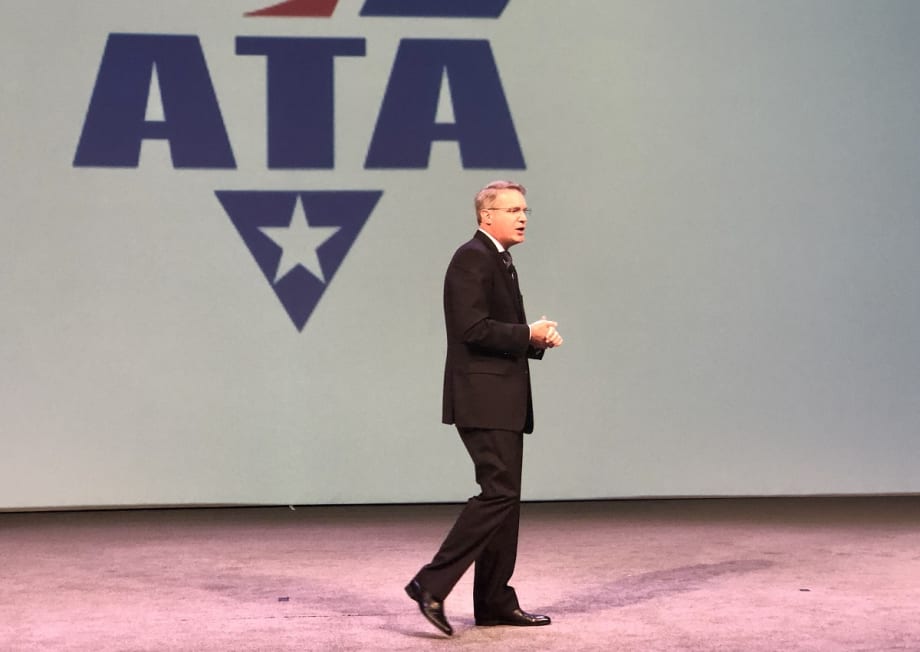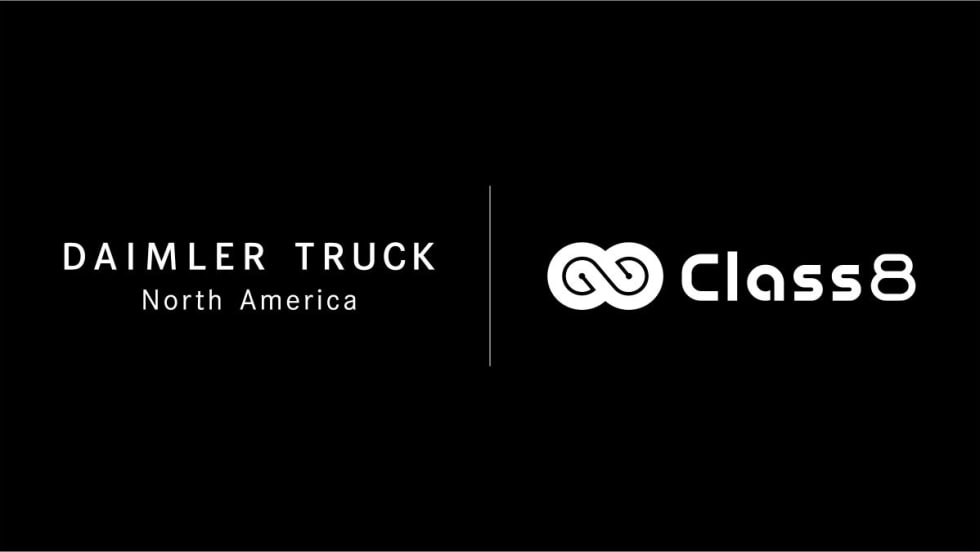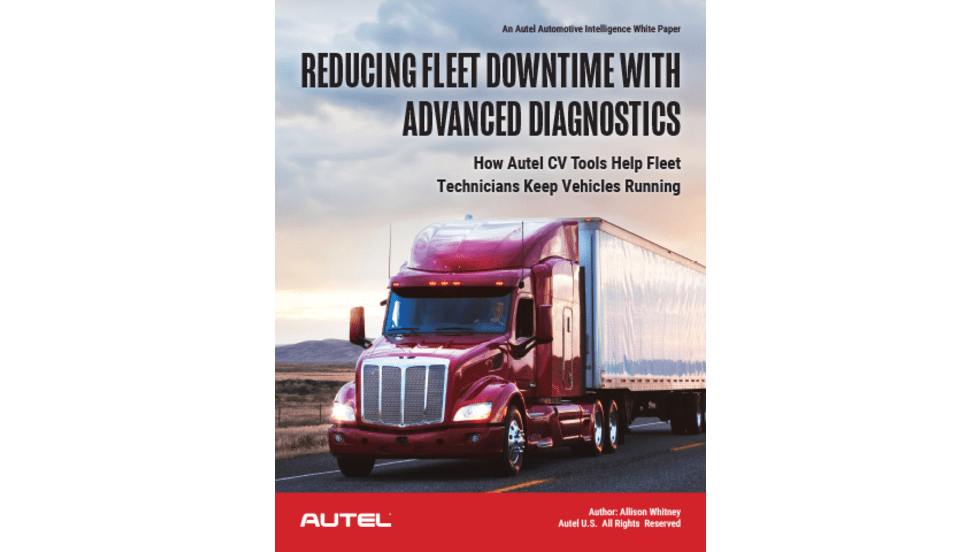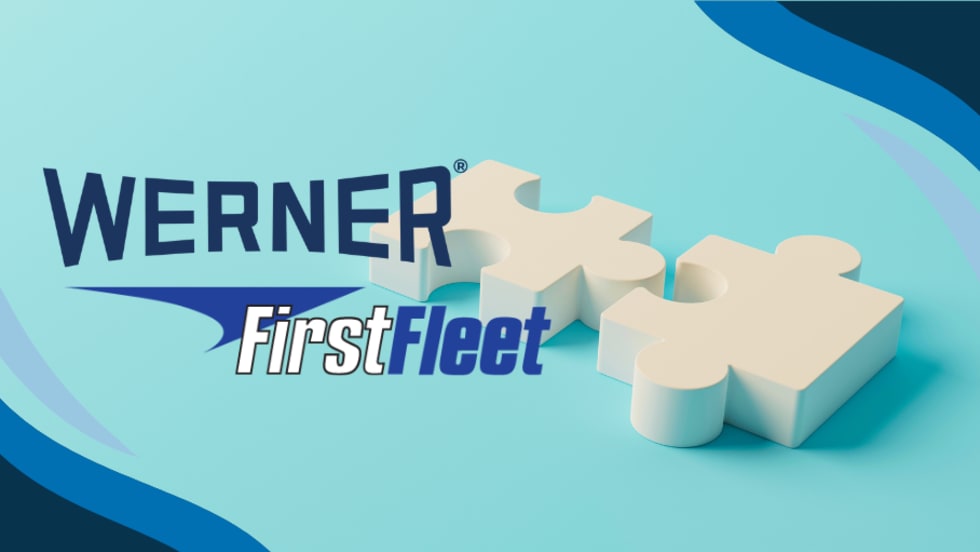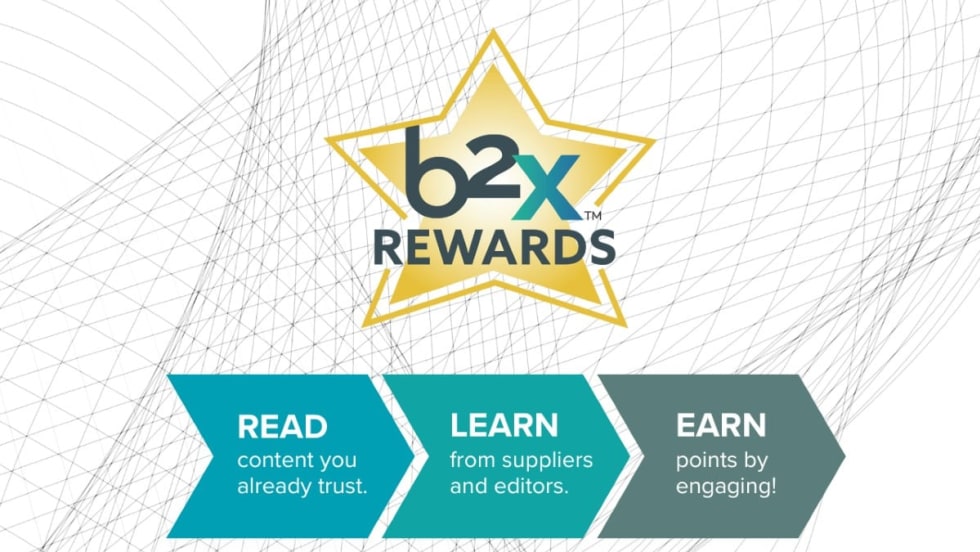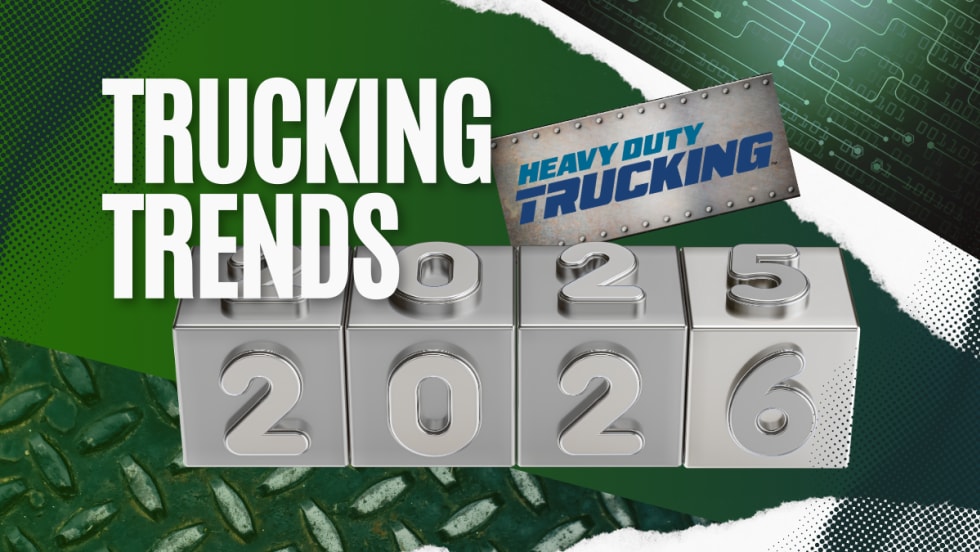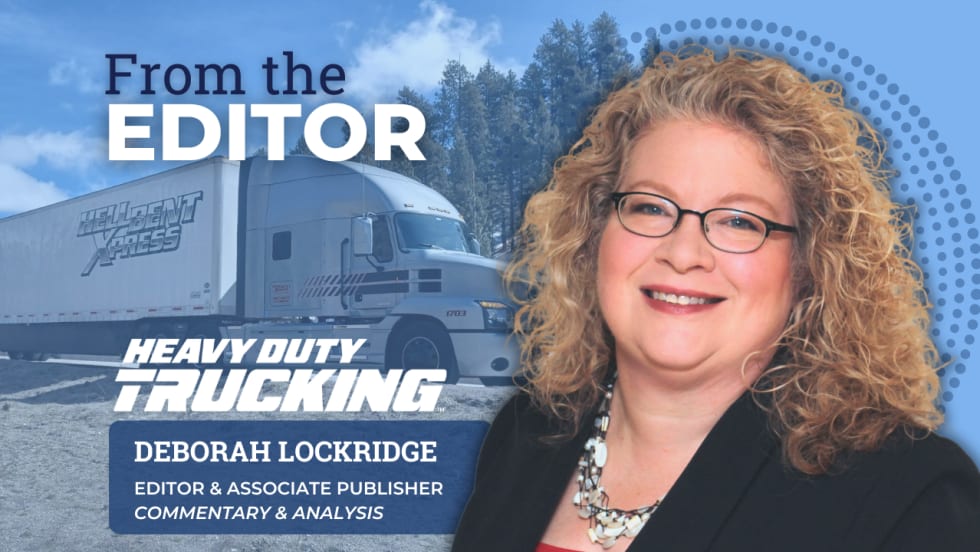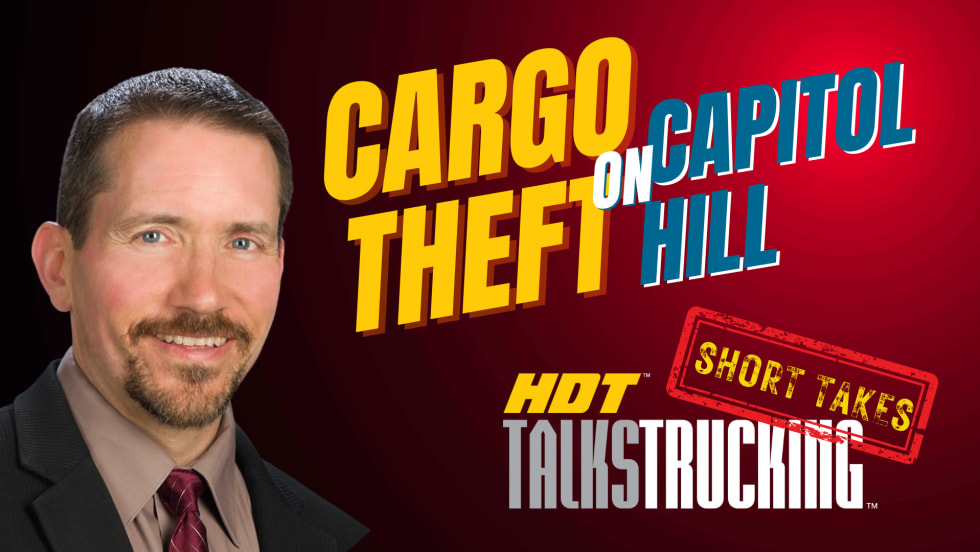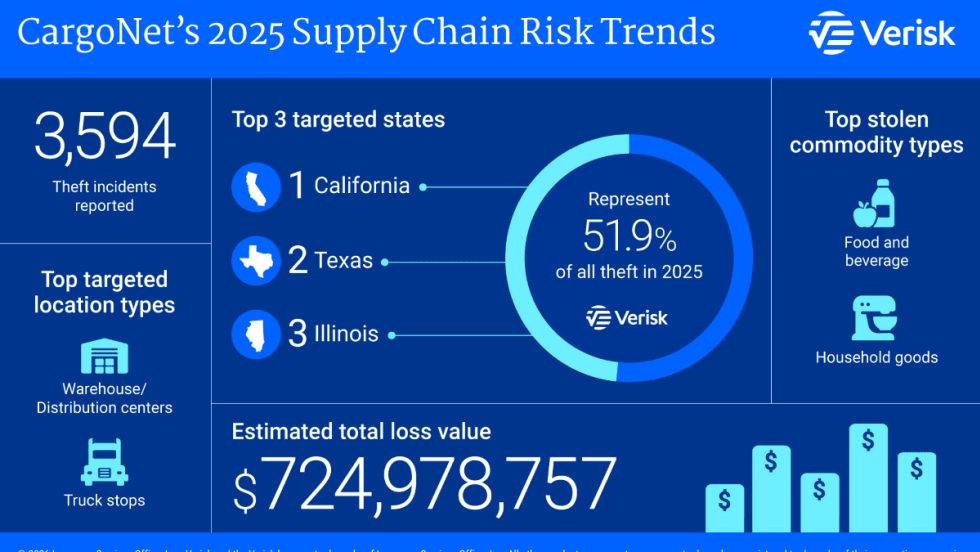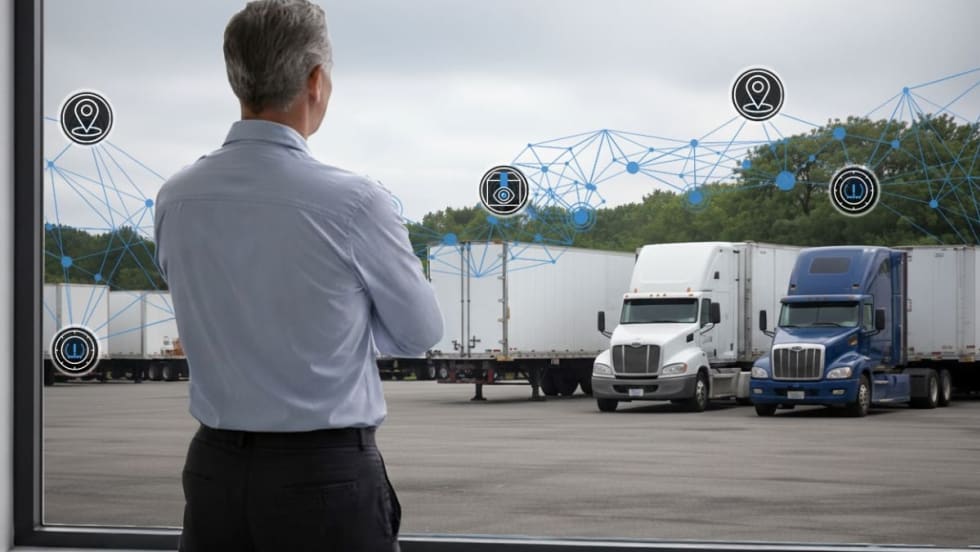Politics, or more exactly how to work political levers to attain favorable policy outcomes, was a running theme of the state of the industry address delivered on Oct. 7 by ATA’s Chris Spear.
“The right wing and left wing belong to the same bird,” said Chris Spear, president and CEO of the American Trucking Associations. “And as an association that puts its members, industry and country first, we [of ATA] must always adhere to the value of working with anyone willing to work with us. We do that, and we soar.”
Politics, or more exactly how to work political levers to attain favorable policy outcomes, was a running theme of the state of the industry address delivered on Oct. 7 by Spear to a standing-room-only crowd in San Diego at the association’s annual management conference and exhibition.
This was not the first time the leader of the nation’s biggest trucking lobby stated his belief in the inestimable value of bipartisanship to effect positive policy changes for trucking. But perhaps mindful of the hyper-partisanship that many contend is now threatening our democratic institutions, Spear took pains to lay out why finding common ground often leads to forging big breakthroughs.
“The fact is, the relationships ATA has with the House and Senate – and both governing parties – are real, strategic and impactful,” he stated. “We don’t favor either side over the other and our Truck PAC support confirms it.”
“At ATA,” Spear continued, “we tend to take notice of what key decision-makers have to say about our association and what it means to them and the country when shaping policy and agendas.” To back that up, he pointed out “the countless times ATA has been to the White House, sharing your policies and supporting an agenda that grows our industry.”
He said the same approach “can be said for the many federal departments and agencies that ATA and its members have worked hand-in-glove to build the very transportation policies and programs that govern our nation,” adding that ATA members and staff have testified at “countless hearings” before Senate committees.
Of Donald and Nancy
As for those who “might say that ‘ATA has gotten cozy with President Trump, his administration and the Senate Republican majority,” Spear said he could understand why they might “judging by all the media attention ATA’s generated these last three years.”
However, he then argued adamantly that that view doesn’t represent the whole picture. “If that were true, then why was ATA invited by Speaker [Nancy] Pelosi [CA-D] to present at the new House majority retreat earlier this year?" I had to dig deep on this one and confirmed that this was the first time ATA had ever been invited to this closed-door venue.
"And once there,” Spear added, “I was repeatedly reminded by House Democrat leaders that I was the only Republican in the room, and that ATA was the only invitee to represent a business interest.”
He went on to note several other examples of ATA reaching out across both sides of the aisle. These included testifying this year before the House Ways and Means Committee chaired by Richard Neal (D-MA) on infrastructure funding and before the House Transportation and Infrastructure Committee, chaired by Peter DeFazio (D-OR) “on all things trucking, making sure that your policies and reasoning were front and center and in no way compromised or distorted by competing, jaded agendas.
“We even put our own members before Chairman DeFazio’s committee, testifying on infrastructure; and, again, just last month on the mounting burden tolls place on our industry,” he added.
“The fact is, the relationships ATA has with the House and Senate – and both governing parties – are real, strategic and impactful,” Spear stated. “We don’t favor either side over the other and our Truck PAC support confirms it.”
Talk is Cheap
Underscoring his point about the tremendous value political activity can deliver, Spear said ATA’s anti-congestion public-awareness ad, “Life Won’t Wait,” was “not only praised by pro-infrastructure advocates, including the Speaker of the House, it was feared by the very legislators that talk a good game, while doing nothing to shore up our nation’s ailing Highway Trust Fund.”
Still, Spear acknowledged the challenge ahead. “Getting a well-funded infrastructure bill passed takes resolve. To succeed, we have to call out anyone who thinks fake funding, like tolling existing roads and bridges, is in our nation’s best interests.
“Unlike them, we actually have a plan,” he said. “ATA, the business community and labor unions are putting real money on the table. A modest increase in the fuel tax – a nickel a year over four years – would generate $340 billion in new revenue over 10 years and cost less than a penny per gallon to administer. “It’s the most conservative, efficient and equitable solution, and the most difficult to evade,” Spear said, adding that it would have immediate impact.”
“It’s time for Congress to do the job we hired them to do—vote,” Spear admonished. “And I am absolutely convinced the votes are there to fund America’s infrastructure. And for those in Congress unwilling to get the job done, we need to help facilitate their immediate retirement.”
Turning to a highly divisive political issue, Spears said, “it’s been said that trade and trucking are synonymous. Even in this politically polluted environment, one would think free and fair trade would appeal to all sides.” He said that putting in place a new version of the North American Free Trade Agreement, due to what he termed “labor and environmental standards [that] were woefully inadequate," would seem to be “a no-brainer, but even the simplest things can be the hardest.”
To break that impasse, Spear said ATA has been “working with this administration, House and Senate, and our Mexican and Canadian counterparts to highlight the overwhelming benefits, as well as the alarming economic impact that would ensue if the pending U.S., Mexico, Canada Agreement is not passed by Congress. And that work is paying off.”
He then made the valid point that “just saying ‘no' gets you nothing. Helping all sides get to ‘yes’ is what we’re all about, and why this agreement will pass and soon bring economic stability to our industry for years to come.”
Lobbying Priorities
Spear also touched on ATA’s efforts to move the ball down the field on other issues key to trucking, including:
Support for “military hiring [to help ease the driver shortage] through our new ATA Workforce Hero’s program, which includes a new, theme-wrapped Utility trailer and our new, camouflaged Mack Anthem -- driven throughout the country by America’s Road Team Captains.”
How taking a “closer look at urban environments is helping us understand how to increase the number of minorities and women supporting our industry” and the need “to elevate the next generation of workers who will inevitably replace them, beginning with 18- to 21-year-olds” by changing federal legislation to allow drivers in that age bracket to drive commercial vehicles on interstate routes.
Developing a policy approach for trucking to deal with the rise in legalized recreational use of marijuana across the country “all while our federal government turns a blind eye” via work to be done by new Controlled Substances, Health and Wellness Subcommittee. here in San Diego.
Continuing to push federal agencies “to finish the mandate ATA got enacted four years ago, permitting hair-follicle testing [for drug use] in place of traditional testing... and we’ll be working with innovators to accelerate the deployment of technology to detect roadside impairment.”
Lastly, Spear spoke about his intention to “make tort reform a tier-one priority at the state and federal level. He summed up the issue this way: “If a car going the opposite direction veers out of control, crosses the median and crashes into a truck going 25 mph below the speed limit and is brought to a controlled stop after the collision, you shouldn’t have to pay $90 million for a tragedy your driver didn’t cause.”
Spear then told an anecdote, chosen to fire up the troops against the trial-lawyer lobby that is effective at thwarting tort reform. “Earlier this year, I testified at a House hearing, where Georgia Congressman John Lewis used a powerful example, sharing advice that President Lyndon Johnson offered him and civil rights leaders, including Martin Luther King, for passing the Civil Rights Act of 1965.
“Johnson told them he needed their help to get Congress to do the right thing. Johnson told them: ‘Make me do it.’ I like that. We didn’t come to San Diego just to win a battle. We came to win the war.”




